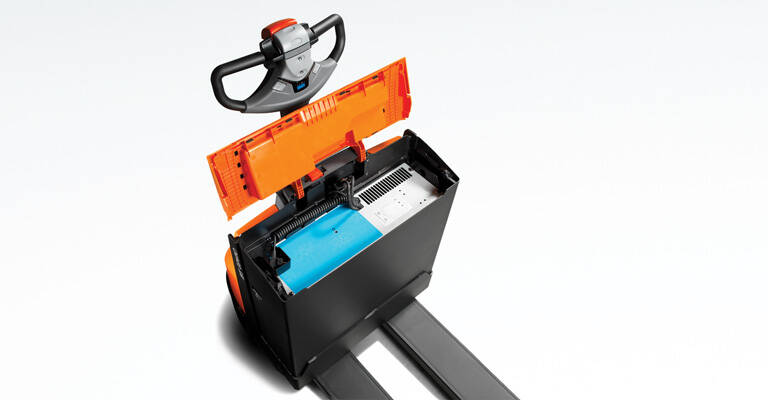Lithium-ion battery systems from Toyota
The elimination of waste is a key principle in Toyota’s lean-thinking, and the introduction of lithium-ion battery technology in recent years is an excellent example of how savings can be achieved. Initially the benefits of li-ion were recognised mainly in multi-shift operations, due to the higher performance of the battery system which, combined with fast opportunity charging, meant that for many users secondary battery systems and battery change facilities could be eliminated with considerable cost savings. However, the benefits associated with li-ion are now becoming attractive also for lower-intensity operations due to energy savings, simplicity and safety advantages.
Toyota is committed to taking full advantage of li-ion technology and has consequently established its own modular design concept that offers a series of advantages. During CeMAT Toyota will be setting out the ‘lean facts’ that relate to the new technology.

Modular li-ion battery solutions
A key differential with Toyota’s modular approach to li-ion battery design is that the concept is based on cell modules. The capacity of the battery is determined by the number of modules used, and this is configured to match customer requirements. The other advantage of this design is that it can be easily replaced with a corresponding module – a task that can be accomplished quickly by a Toyota technician - reducing the risk of downtime.
Improved energy efficiency
Substantially improved efficiency in the charging process and reduction of heat generation mean that lithium-ion batteries gain 20-25% more energy utilisation, compared to lead-acid batteries. Furthermore the new battery systems provide stable voltage regardless of charge level. Combine this with the fact that opportunity charging means that li-ion batteries are normally maintained at a relatively high level of charge, and as a result the battery capacity required for li-ion is significantly lower.
Eliminating space and resource
Li-ion batteries are maintenance-free, and thanks to opportunity charging, battery change is also eliminated. This saves space and resource that many operations currently utilise for battery management.
